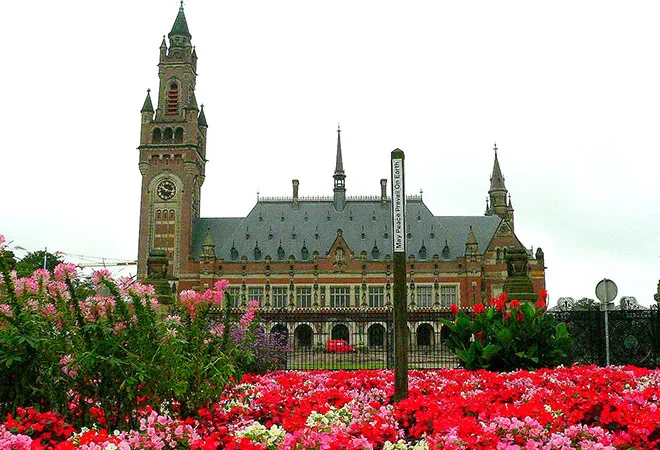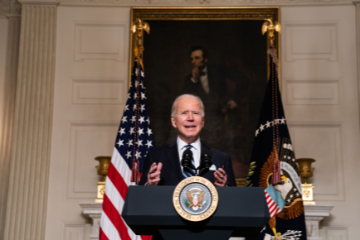
The four-day public hearing of the Jadhav case in the International Court of Justice (ICJ), in Peace Palace in The Hague, concluded on Thursday, 21 February. With court proceedings adjourned sine die, the verdict is expected by the end of this summer. Senior counsel Harish Salve primarily made the Indian case, while Queen’s Counsel Khawar Qureshi steered the Pakistani ship. Before leaving India Mr. Salve when asked about his thoughts on the Jadhav case stated, “Justice, he will get.” This piece argues why India’s position is not only immediately important for its former naval officer but also for the civilized world, its populace and human rights. It looks into the essentials of the Vienna Convention on Consular Relations (VCCR), 1963, the relevant judicial precedents, the principles of natural justice, the applicable parts of the International Covenant on Civil and Political Rights (ICCPR) and the doctrine of due process. It further attempts to deconstruct the argument that whether cases of espionage and terrorism form an exception to the Vienna Convention of 1963, or not.
The facts of the case are well known. India maintains that Pakistani authorities arrested, detained, tried and sentenced to death on 10 April 2017 an Indian national, Mr. Kulbhushan Sudhir Jadhav. Initially, on 25 March 2016 India was informed about the alleged arrest of Jadhav and that very day India sought consular access. On 30 March 2016, India sent a reminder reiterating its request for consular access. In addition, thirteen more reminders were sent. India has maintained that Jadhav is its national and a former naval officer who was carrying out his business in Iran. While he was in Iran, he was abducted, brought to Pakistan, and tried on fabricated charges of espionage and terrorism in the Pakistani Military Court. Meanwhile, the facts according to Pakistan are somewhat different. It alleges that Kulbushan Jadhav is a spy, a Research and Analysis Wing (RAW) agent, working in Baluchistan, on “India’s official policy of terror.” Pakistan cites grounds of national security to support its claim.
Nevertheless, this case of India v. Pakistan is symbolic of a larger truth. The administration of justice in this case will not only involve a balancing act between contending claims, but it will be a strong test of human rights as well.
Today, it gives an opportunity to the principal judicial organ of the United Nations, to once again establish individual freedom in midst of piercing state rivalries. It allows the court to stand with its verdict in the LaGrand case (Germany v. USA), ICJ 2001 and defend the rights of a detainee. It is in this case that ICJ held that ‘rights under the Vienna Convention cannot be denied at the cost of domestic legal procedures of a particular nation.’ Moreover, the first principle of natural justice, “audi alteram partem”, a Latin phrase that translates into, ‘to listen to the other side’, has been brazenly ignored. In principle, it is the primary violation committed, by Pakistan. By denying Jadhav, a fair plea, through the counsel of his choice, the legitimacy of the Pakistani Military Court’s decision is questionable. What is more, there was a twenty-two day delay between the actual date of Jadhav's arrest and the communication of this fact to the Indian consulate. Article(s) 36 (1) of VCCR, 1963, which have been outrageously violated, read thus,
“With a view to facilitating the exercise of consular functions relating to nationals of the sending State: (a) consular officers shall be free to communicate with nationals of the sending State and to have access to them. Nationals of the sending State shall have the same freedom with respect to communication with and access to consular officers of the sending State; (b) if he so requests, the competent authorities of the receiving State shall, without delay (emphasis added), inform the consular post of the sending State if, within its consular district, a national of that State is arrested or committed to prison or to custody pending trial or is detained in any other manner. Any communication addressed to the consular post by the person arrested, in prison, custody or detention shall be forwarded by the said authorities without delay. The said authorities shall inform the person concerned without delay (emphasis added) of his rights under this subparagraph;”
Apart from the delay, Indian consular officers weren’t even given an access to Jadhav. He wasn’t told by the authorities of his rights under law to meet his consular officers. Not only that, the denial of Article 36 (1) , which guarantees the consular officers of the sending state (i.e. India) the right to visit, converse and correspond with its national, exhibits how Indian rights under public international law have been infracted. The calling of such violations by India in the ICJ as “egregious” is only fair.
On the other hand, Pakistan claims that cases of espionage form an exception to the treaty. In support of this, it gives the opinion of Luke Lee and John Quigley given in the book Consular Law and Relations, 1961. In a similar vein, it quotes Biswanath Sen (a former Legal Adviser to the MEA, Govt. of India), "A frequent exception to the consular rights to protect nationals and visit them in prison is the case of persons who are held on charge of espionage as evidenced by the practice of states." The above exception is sought, on grounds of customary international law.
For a practice to be termed as a customary international law practice, it needs to pass a two-fold test. Firstly, the said practice needs to be a, general practice and secondly there needs to be a belief that a legal obligation exists on the state to fulfill the said practice i.e. opinio juris.
In this case, this is the chief point of contention. The most plausible way to look at this variance in interpretation of state practice and law is to use the Vienna Convention on Law of Treaties (VCLT) 1969, wherein under Article 31 provides for general rule of interpretation. Article 31(1) provides that a treaty shall be interpreted in good faith in accordance with the ordinary meaning to be given to the terms of the treaty in their context and in the light of its object and purpose. Moreover, Article 31(2) provides that the context for the purpose of the interpretation of a treaty shall comprise, in addition to the text, including its preamble and annexes. On applying these provisions and giving the VCCR, 1963 a ‘collective’ reading, it is demonstrated beyond reasonable doubt, that there can be no exception to the norms established by the said treaty. Furthermore, as argued by India in ICJ, the doctrine of due process, which ordinarily means that no individual shall be deprived of life, liberty or property without fair procedure and the promise of legality, would stand negated provided the Pakistani interpretation is given credence.
In addition, as argued by India, the Pakistani position is a grave violation of ICCPR. The increasingly partisan and hasty trial conducted in the Pakistani military court does not stand in accordance with the civil and political rights guaranteed under international law.
It raises questions about the fairness of the verdict and the competency of the court. Prejudiced treatment towards any individual is what human rights law aims to obstruct. In addition, at the material time of the instances of this case both India and Pakistan had ratified ICCPR. Article 14 (1) of this treaty reads, “All persons shall be equal before the courts and tribunals. In the determination of any criminal charge against him, or of his rights and obligations in a suit at law, everyone shall be entitled to a fair and public hearing by a competent, independent and impartial tribunal established by law.” It is doubtful, whether the Jadhav trial was fair and in public. The provision will stand vilified provided the court adjudicates in favour of Pakistan. Couched in support of an extracted confession, the entire case of Pakistan against Jadhav is weak. Barring the self-incriminating statement, Pakistan, as stated by Mr. Salve, “has no scintilla of evidence against Mr. Jadhav.”
In conclusion, while arguing it out for the Pakistani government, counsel Qureshi laid stress on media articles, strong language and nursery rhymes, Mr. Salve based his arguments on incisive jurisprudential analysis. His submissions were an advocacy for human rights and individual freedoms. It was an attempt to uphold the rights of person(s) who are trapped and are suffering in a milieu of geo-political contestations. Basing his opinion on the evolving jurisprudence of Article 36 of VCCR, 1963, it is not an exaggeration to state that in this case, as far as law is concerned India is in the driving seat. Meanwhile, as the judges draft their judgment, it is crucial for both nations to give that chance to the court. Any incident to the contrary would be a poor commentary on state behavior. The interim period demands extreme security for the life of Kulbushan Jadhav. It needs to be highlighted that the bilateral context and subtext in which this case operates will have its own ramifications.
The views expressed above belong to the author(s). ORF research and analyses now available on Telegram! Click here to access our curated content — blogs, longforms and interviews.




 PREV
PREV

